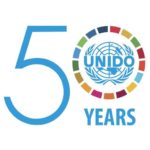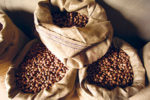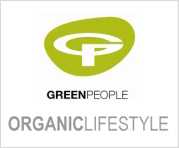50th Anniversary of United Nations Industrial Development Organization
 Formed in November 1966, the specialist agency, which assists developing and middle income countries achieve sustainable industrial development, has been the driver behind thousands of successful initiatives to improve the lives of millions of the world’s poor.
Formed in November 1966, the specialist agency, which assists developing and middle income countries achieve sustainable industrial development, has been the driver behind thousands of successful initiatives to improve the lives of millions of the world’s poor.
In 2016 UNIDO has 839 ongoing projects across the world worth a total of almost US$1.2 billion. These initiatives aim to share prosperity in communities and increase their economic competitiveness while safeguarding the local environment.
Looking to the future, UNIDO’s Director General, Li Yong says that the organization can help to create jobs and conditions which might prevent future refugee crises, “Our piloting programme, Programme for Country Partnership, supporting African countries, Ethiopia, Senegal, to focus on the industrial parks, special economic zones and agro-industrial parks are generating thousands of jobs which will help resolve the issue of refugees, migrations and at the same time in the long run supporting poverty elevation in the region.”
A major topic is female economic empowerment. The Egyptian Minister of International Cooperation, Sahar Nasr, said women need equal rights, equal opportunities and should be given every opportunity to contribute to the economic sphere.
UNIDO is not a funding agency. Typically it implements pilot projects with funds from donors, then finds partners to either fund the next phase or take UNIDO’s approach and replicate it. For example, in the early 1990s the organization developed a multi-functional platform to generate energy in remote areas that were not connected to national electricity grids. Within a few years the Bill and Melinda Gates Foundation and the UN Development Programme had replicated the model in 3,000 villages across Africa.
 An example of a successful UNIDO project took place in Mali. This project has helped women in poor, remote areas of Mali produce and export tonnes of organic shea butter for further processing in Europe. The skills learnt by the women have helped reduce poverty, enabled their children to go to school and have opened up international trade not just to this women’s co-operative but to Mali as a whole.
An example of a successful UNIDO project took place in Mali. This project has helped women in poor, remote areas of Mali produce and export tonnes of organic shea butter for further processing in Europe. The skills learnt by the women have helped reduce poverty, enabled their children to go to school and have opened up international trade not just to this women’s co-operative but to Mali as a whole.
Women
A wide selection of stylish fashion clothing for all occasions including: dresses, tops, knitwear, skirts, eveningwear, coats, suits, jackets and more. Styles to suit a variety of tastes from classic to vintage and more in between: recycled and upcycled. This is sustainable ethical fashion at it's best.
Women's Ethical ClothingMen
If you're looking for something eco or ethical to wear for dress down friday, a casual weekend or holiday, you'll find it here. Tops, t-shirts, jeans, trousers from mainly fairtrade and organic cotton.
Men's Ethical FashionKids
Green fashion for kids is fun and made mainly from natural fibres including organic cotton and Fairtrade cotton. From baby to early teens, there's something to make all kids happy. Bright colours, animals, fun shapes that children can wear all year round.
Kids Green ClothingAccessories
A treasure trove of accessories from around the world can be found here. A vast selection of jewellery including necklaces, bracelets, rings and earrings to shoes, hats, bags, handbags and scarves. Whatever your style, these items will complete any outfit.
Eco-Friendly Accessories





Comments are closed.